第27章 CHAPTER V THE NEW PRESIDENT(4)
It was Jefferson Davis. The same flood of moonlight that had poured upon Shepard illuminated his face also. But it was not the face of a triumphant man. It was stern, sad, even gloomy. The thin lips were pressed together more tightly than ever, and the somber eyes looked out over the city, but evidently saw nothing there. Harry felt instinctively that his thoughts were like those of Shepard. He, too, foresaw a great and terrible war, and, so foreseeing, knew that this was no time to rejoice and glorify.
Harry, held by the strong spell of time and place, watched him a full half hour. It was certain now that Jefferson Davis was thinking, not looking at anything, because his head never moved, and his eyes were always turned in the same direction--Harry noticed at last that the direction was the North.
The new President stepped back, closed the window and no light came from his room. Harry hurried to the camp, where, as he had surmised, he found St. Clair and Langdon. He gave some excuse for his delay, and telling nothing of Shepard, wrapped himself in his blankets. Exhausted by the stirring events of the day and night he fell asleep at once.
Three days later they were on their way back to Charleston. They heard that the inauguration of the new President had not been well received by the doubtful states. Even the border slave states were afraid the lower South had been a little too hasty. But among the youths of the Palmetto Guards there was neither apprehension nor depression. They had been present at the christening of the new nation, and now they were going back to their own Charleston.
"Everything is for the best," said young Langdon, whose unfailing spirits bubbled to the brim, "we'll have down here the tightest and finest republic the world ever heard of. New Orleans will be the biggest city, but our own Charleston will always be the leader, its center of thought.""What you need, Tom," said Harry, "is a center of thought yourself.
Don't be so terribly sanguine and you may save yourself some smashes.""I wouldn't gain anything even then," replied Langdon joyously. "I'll have such a happy time before the smash comes that I can afford to pay for it. I'm the kind that enjoys life. It's a pleasure to me just to breathe.""I believe it is," said Harry, looking at him with admiration. "I think I'll call you Happy Tom.""I take the name with pleasure," said Langdon. "It's a compliment to be called Happy Tom. Happy I was born and happy I am. I'm so happy I must sing:
"Ol Dan Tucker was a mighty fine man, He washed his face in the frying pan, He combed his hair with a wagon wheel And died with a toothache in his heel.""That's a great poem," said a long North Carolina youth named Ransome, "but I've got something that beats it all holler. 'Ole Dan Tucker' is nothing to 'Aunt Dinah's Tribberlations.'""How does it go?" asked St. Clair.
"It's powerful pathetic, telling a tale of disaster and pain. The first verse will do, and here it is:
"Ole Aunt Dinah, she got drunk, Felled in a fire and kicked up a chunk, Red-hot coal popped in her shoe, Lord a-mighty! how de water flew!""We've had French and Italian opera in Charleston," said St. Clair, "and I've heard both in New Orleans, too, but nothing quite so moving as the troubles of Ole Dan Tucker and Ole Aunt Dinah."They sang other songs and the Guards, who filled two coaches of a train, joined in a great swinging chorus which thundered above the rattle of the engine and the cars, so noisy in those days. Often they sang negro melodies with a plaintive lilt. The slave had given his music to his master. Harry joined with all the zest of an enthusiastic nature.
The effect of Shepard's words and of the still, solemn face of Jefferson Davis, framed in the open window, was wholly gone.
Spring was now advancing. All the land was green. The trees were in fresh leaf, and when they stopped at the little stations in the woods, they could hear the birds singing in the deep forest. And as they sped across the open they heard the negroes singing, too, in their deep mellow voices in the fields. Then came the delicate flavor of flowers and Harry knew that they were approaching Charleston. In another hour they were in the city which was, as yet, the heart and soul of the Confederacy.